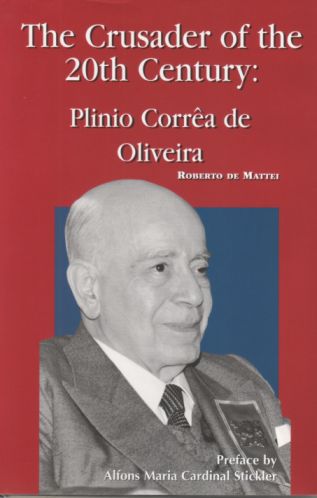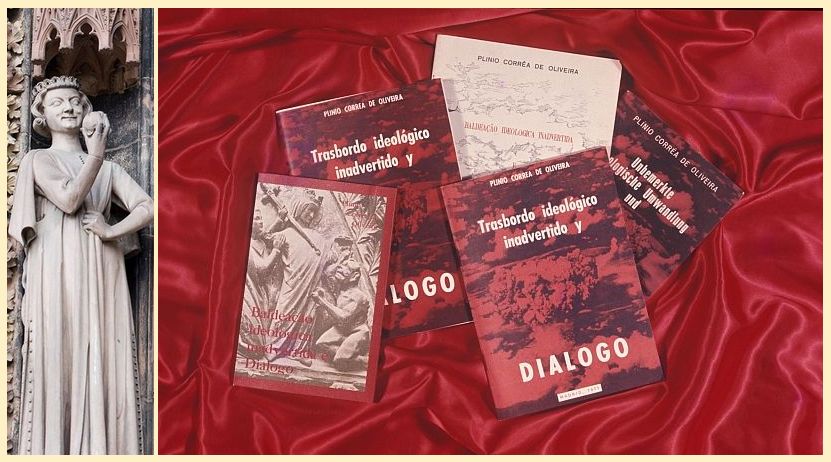|
Chapiter VI
10. The denunciation of the modernist “dialogue”
|
|
|
While following the encyclical Ecclesiam suam the word “dialogue” passed from mouth to mouth, in December 1965 Plinio Corrêa de Oliveira published another important study: Unperceived Ideological Transhipment and Dialogue (93). In it the author denounced the use of the term “dialogue” as a technique of persuasion that, in the strategy of Marxist conquest, occupies a position not inferior to its classical one of violence. Silvio Vitale, in his preface to the Italian edition of the essay, thus summarized the analysis carried out by Doctor Plinio: “With dialogue, Communism grasps the opportunity to induce the Catholic interlocutor to place himself on a level of Hegelian relativism: the dialogue takes place between persons who, in a confrontation between theses and antitheses, implicitly aim at a synthesis that includes and exceeds the first. This position is fully coherent with Communism. (...) Vice-versa it is fatal for the Catholic because he, in accepting this kind of dialogue, eventually contradicts the existence of truth and good as absolutes, unchangeables, transcendents. (...) The imprudent interlocutor starts out convinced that he can arrive at the truth and therefore at unity through his own undertaking to persuade the adversary. Then he begins to consider the supreme end of the conversation not to be the truth but unity. Subsequently he will end up believing that there are no objective truths and errors, so it is not necessary to convince to obtain unity. In fact he convinces himself that only in function of ‘relative truths’ and contingencies can he effectively assert himself and progress. At this point, having fallen completely into the hands of the Irenist utopia, he is dominated completely by the aim of coexistence at any cost with the adversary” (94). Few analyses of Hegelian dialectics equal the work of the Brazilian thinker, in which metaphysical depth is accompanied by a great capacity for psychological and linguistic analysis. He recalls how, according to St Thomas, one of the reasons for which God permits errors and evil is so that, by contrast, the splendour of truth and good stand out all the more. (95) Now, how can one make this contrast be noticed, other than by the open and categorical denunciation of how much falsity and evil this censurable error contains? With this denunciation, imposed by the evangelical “yes, yes; no, no”, a healthy conflict is produced in the soul of whoever is listening, by eliminating ambiguities and uncertainties and driving towards adhesion to total truth. Plinio Corrêa de Oliveira places an absolute incompatibility against every Irenistic tendency: “Communism cannot accept the coexistence with anyone who, contrary to itself, professes a philosophy based on the recognition of the truth and the good as absolute, immutable, transcendent values existing in a perfect way in the divine essence” (96) Notes: 93) Cf. P. CORRÊA DE OLIVEIRA, Baldeação ideológica inadvertida e diálogo, São Paulo, Editora Vera Cruz, 1965, En. tr. Unperceived Ideological Transhipment and Dialogue, Crusade for a Christian Civilization, Vol. 12 no. 4, October-December 1982; It. Tr. Trasbordo ideologico inavvertito e dialogo, Naples, Edizione de L’Alfiere, 1970. 94) SILVIO VITALE, Preface to P. CORRÊA DE OLIVEIRA, tr. it. Trasbordo ideologico, pp. 6-7. 95) St. Thomas Aquinas, Contra Gentes, III. 71. 96) P. CORRÊA DE OLIVEIRA, Unperceived Ideological Transhipment and Dialogue, p. 38. |
|


